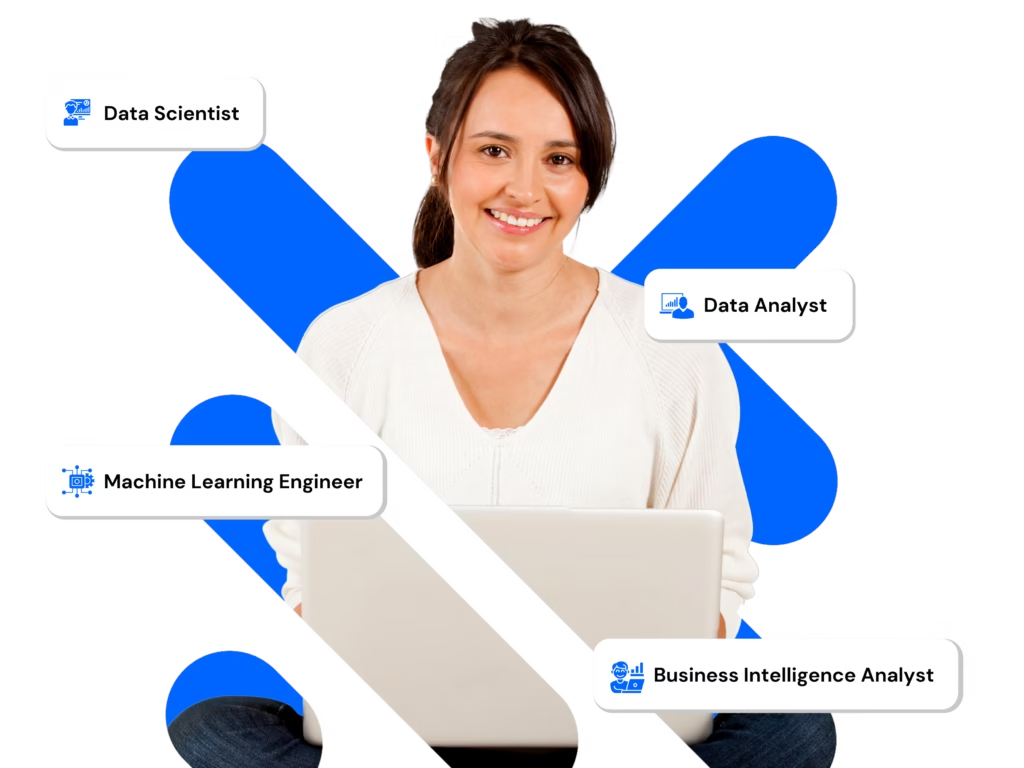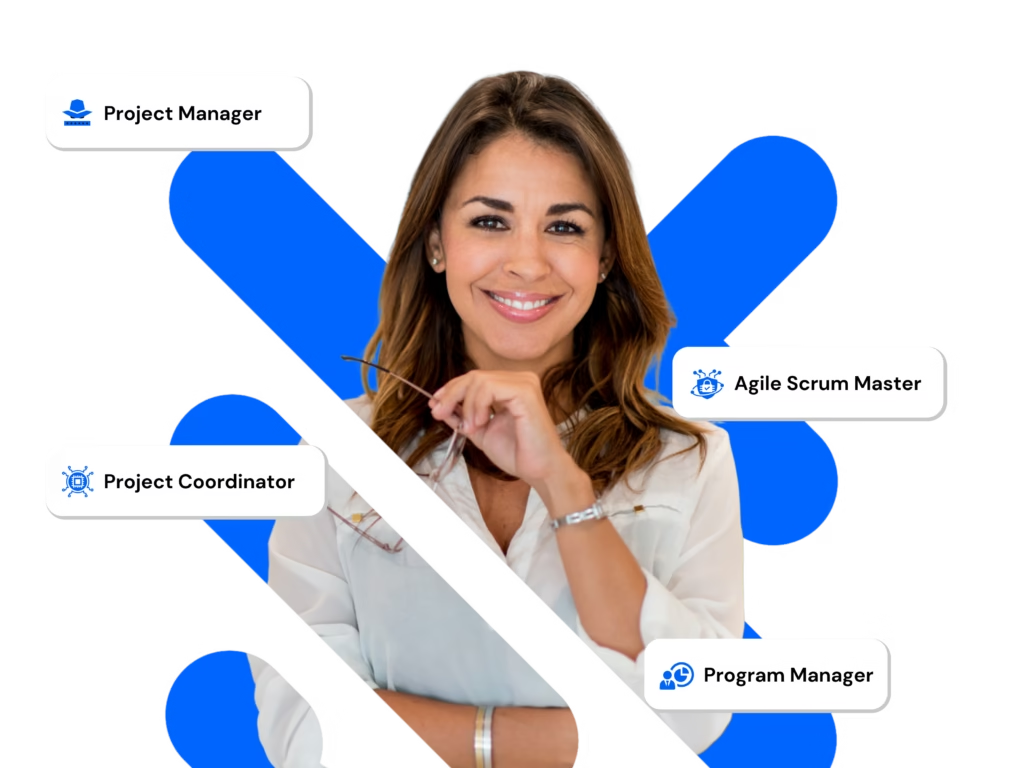In the world of Cloud Computing, Technical skills may help you get started, but soft skills are what keep you moving forward. Cloud projects thrive on cooperation, fast thinking, and clear communication across multiple teams. A decent professional stands out by their capacity for adaptation, creative problem-solving, and continuous learning of new tools. Since the cloud landscape is changing nearly every day, projects run more smoothly and have a greater impact when experts and people skills are combined. To be successful in Cloud Computing, one needs to master technical skills, as well as soft skills; just working on technical skills is not enough in today’s world.
Cloud computing is now the foundation of today’s digital transformation, powering everything from start-ups to multinational corporations. Professionals with solid cloud knowledge are in great demand as more businesses move their activities online. Developing a combination of technical, soft, and strategic abilities that promote efficiency and innovation is more important for mastering cloud computing than simply understanding a single platform. Building scalable, secure, and economical solutions requires a variety of skills, from working with leading platforms like AWS, Microsoft Azure, and Google Cloud Platform to comprehending DevOps procedures, automation, and cloud service models (IaaS, PaaS, and SaaS).
Table of Contents
Understanding Cloud Architecture and Design

Designing scalable and safe solutions requires a solid understanding of cloud computing architecture. It entails involves understanding how various elements—like networking, computation, and storage—interact in a cloud environment. When designing solutions, architects need to take cost-effectiveness, performance, and dependability into account. Depending on the demands of the company, this ability also include determining when to use public, private, or hybrid cloud models. It is quite helpful to be familiar with architectural best practices from well-known providers like as AWS, Azure, and Google Cloud. A well-designed cloud architecture can improve user experiences and avoid expensive failures. All things considered, it establishes the technical framework for all cloud-based initiatives.
Continue reading devops-meaning-methodology
1. Master Top 3 Cloud Platforms
Proficiency in major cloud platforms, such as AWS, Microsoft Azure, and Google Cloud Platform (GCP), is highly valued in today’s IT environment. Because these three giants dominate about two-thirds of the world’s cloud industry, proficiency with these can define a person’s career. AWS dominates with its extensive service portfolio and well-established ecosystem, Azure easily connects with enterprise-use Microsoft technologies, and GCP is renowned for its AI and data analytics capabilities. Although it’s not necessarily required to master all three, having practical experience with at least one and a solid knowledge of the others can greatly increase your employability and versatility. Employers in today’s competitive IT sector respect experts who can confidently and effectively build, implement, and maintain apps across various cloud settings.
Amazon Web Services (AWS)-
According to recent figures, Amazon Web Services (AWS) controls around 31% of the world’s cloud infrastructure usage, making it the industry leader. AWS was founded in 2006 and offers a broad range of more than 200 completely functional services, such as serverless operations with Lambda, storage with S3, and computation with EC2. Its vast worldwide network, which includes over 30 locations and more than 100 availability zones, guarantees low latency, scalability, and dependability. Leading businesses like Netflix, Airbnb, and NASA have embraced AWS extensively, demonstrating its enterprise-grade capabilities. AWS is still a platform that has potential cloud workers who want to be globally relevant must understand because of its large developer community and extensive certification path.
Microsoft Azure
The second-largest cloud provider, Microsoft Azure, dominates hybrid and enterprise solutions and has over 22% of the global market Share. It is a perfect fit for businesses who are already using Microsoft products because of its smooth integration with Windows Server, Office 365, and Active Directory. Kubernetes Service (AKS), Azure Virtual Machines, and Synapse Analytics for data solutions are just a few of the many services that Azure provides. It also sets the benchmark for compliance, with certifications in more than 90 international standards. Azure powers the cloud operations of major companies like eBay, BMW, and LinkedIn. Azure’s hybrid flexibility, AI integration, and corporate trust make it the perfect choice for professionals who want to focus on safe and scalable business solutions.
Google Cloud Platform (GCP
Google Cloud Platform (GCP) is expanding quickly because of its innovations in data analytics, artificial intelligence, and machine learning, while only controlling around 10% of the cloud market. It powers the same infrastructure that powers YouTube, Gmail, and Google Search. BigQuery for data analytics, TensorFlow for artificial intelligence, and Kubernetes Engine for container orchestration are some of GCP’s most notable offerings. Google is also an innovator in sustainability; since 2007, its data centers have been carbon-neutral, and by 2030, they want to be completely carbon-free. GCP is used by companies like Spotify, PayPal, and Verizon because of its advanced data analytics and developer-friendly environment. Gaining proficiency in GCP is a strategic benefit for cloud learners who are interested in innovation and AI-driven solutions.
what-is-django-all-you-need-to-know
2. DevOps and Automation Skills
Gaining proficiency in both technical and interpersonal skills is crucial for success in DevOps. Focus on containerization tools like Docker and Kubernetes, cloud platforms like AWS, Azure, and GCP, and Infrastructure as Code technologies like Terraform and Ansible. Develop your proficiency in scripting languages (Python, Bash), monitoring systems (Prometheus, Grafana), and CI/CD tools (Jenkins, GitHub Actions). Long-term success in DevOps also depends on soft skills like teamwork, communication, and a culture of constant learning.
DevOps
DevOps is all about connecting development and operations to make software delivery quicker and more effective. It combines automation, collaboration, and ongoing development to ensure smooth application deployment and maintenance. Cloud infrastructure management, version control systems, and CI/CD pipelines are all essential for a DevOps professional. Terraform and Ansible help in the management of infrastructure as code, while Docker and Kubernetes are crucial tools for containerization and scaling. DevOps places more emphasis on collaboration, problem-solving, and flexibility than it does on tools—essential abilities that boost output in ever-changing cloud environments. Becoming proficient in DevOps processes has become one of the most important skill sets in the tech sector as more businesses embrace cloud-first tactics.
Automation Skills
Cloud computing automation enables the rapid and secure deployment of infrastructure and applications by enterprises. Proficiency in tools like as Terraform, Ansible, and AWS CloudFormation enables the effective handling of ongoing jobs. Automated deployments increase reliability, decrease human error, and speed up release cycles. For quicker development workflows, this knowledge also includes integrating Continuous Integration/Continuous Deployment pipelines. Infrastructure can scale dynamically in response to demand thanks to cloud automation. It is also necessary for disaster recovery procedures, which enable prompt service recovery. Professionals can achieve operational excellence and agility in the cloud environment by becoming proficient in automation.
Focus on CD and CI Pipelines
CD and CI Continuous Deployment and Continuous Integration are key parts of modern cloud and DevOps workflows that speed up and optimise software development. CI enables developers to automatically combine their code changes in a single location, facilitating the early detection and correction of issues. CD then eliminates the requirement for manual labour by automatically deploying the tested code to live environments. They work together to help teams distribute updates more frequently and with fewer mistakes. Jenkins, GitHub Actions, and GitLab CI/CD are well-known solutions that simplify and expedite this procedure.
Work on Tools like Jenkins and Github
Jenkins
One of the most popular open-source automation tools for creating CI/CD pipelines is Jenkins. It enables programmers to automate every step of the software development process, from creating and testing code to deploying it in various settings. Jenkins is very flexible and customized for a wide range of technologies and workflows because to its support for hundreds of plugins. It is perfect for complicated DevOps setups because it can be connected with tools like Docker, Kubernetes, and Git. Teams have complete control over configurations and scaling because it is self-hosted. Jenkins is trusted by many big businesses because of its solid community support and reliability. An excellent method for understanding the foundations of automation and continuous delivery is to learn Jenkins.
Github
A cloud-based automation tool called GitHub Actions is integrated into GitHub and makes it simple for developers to set up and maintain CI/CD processes inside their repositories. It enables users to automate processes like as code testing, building, and deployment whenever pull requests or changes are pushed. GitHub Actions interacts easily with GitHub projects and doesn’t require any extra setup, in contrast to Jenkins. Developers can utilize YAML files to design customized workflows or prebuilt “actions.” It is ideal for small to medium teams or open-source projects due to its simple interface and strong GitHub integration. GitHub Actions is rapidly emerging as the most common choice for contemporary DevOps automation due to its increasing acceptance and regular updates.
Read why-generative-ai-machine-learning-certification-are-game-changer
3. Data Management in the Cloud

Modern businesses focus heavily on data, and cloud computing provides effective means of processing, storing, and analyzing it. This ability requires knowledge of database administration, data lifecycle strategies, and storage services. Scalable storage options that can effectively manage large datasets are offered by cloud platforms. Professionals also need to understand how to set up high availability, disaster recovery, and backup procedures. Maintaining confidence is greatly supported by data governance, which includes security and compliance. Cloud-based analytics technologies give businesses useful information to help them make decisions. Reliability, accessibility, and performance are guaranteed for business-critical activities through effective cloud data management.
Core Practices in Data Mgt.
Cloud data management revolves around essential practices that ensure data is always secure, reliable, and accessible. Key areas include data storage, which provides scalable and affordable ways to handle massive amounts of data; data backup, which protects important assets from unintentional loss or corruption; data recovery, which ensures quick restoration in the event of system failures or cyberattacks; and data migration, which enables smooth information transfer between systems or cloud platforms. These procedures work together to create a strong cloud environment that facilitates effective data use and business continuity.
Enabling AI, Machine Learning and Business intelligence
Cloud data management plays an important role in AI, machine learning (ML), and business intelligence (BI). It allows the organization and storage of vast volumes of data required for learning, analysis, and prediction by these technologies. It allows the organization and storage of vast volumes of data required for learning, analysis, and prediction by these technologies. the cloud also provides quick processing capability, enabling companies to gain insights in real time and make better decisions. Businesses can quickly leverage their data to identify trends, boost productivity, and develop more intelligent solutions that drive development and innovation with the help of tools like Google BigQuery, AWS SageMaker, and Azure Machine Learning.
10-best-automl-tools-for-machine-learning
4. Knowledge of Networking, Storage, and Security in Cloud
Cloud computing offers efficient ways to process, store, and analyse data, which is a major emphasis of modern enterprises. Database management, data lifecycle methods, and storage services are necessary for this skill. Cloud systems provide scalable storage solutions that can efficiently handle big datasets. Experts must also know how to set up backup, disaster recovery, and high availability protocols. Data governance, which includes security and compliance, is crucial to preserving trust. Technologies for cloud-based analytics provide firms with relevant data to help in decision-making. Effective cloud data management ensures performance, dependability, and accessibility for business-critical operations.
Cloud-Based Networking- All cloud operations are supported by cloud networking, which links databases, apps, and virtual machines across international data centres. It involves managing subnets, virtual networks, load balancing, and routing to guarantee smooth resource communication. AWS VPC, Azure Virtual Network, and Google VPC are examples of platforms that enable customers to create scalable, secure networks that are customised for their applications. Businesses can use cloud networking to improve latency performance, manage traffic flow, and safely expand on-premises networks using hybrid or multi-cloud configurations. Understanding network architecture and protocols such as TCP/IP, DNS, and VPNs is crucial for preserving dependability and speed as cloud environments expand.
Cloud-Based Storage- Because cloud storage provides the scalability and flexibility that traditional systems do not, users can store and access data from any location. To meet a range of demands, leading suppliers provide a variety of storage options, including file storage, block storage, and object storage (such as AWS S3 or Azure Blob). Because backup storage is spread across several data centres, data durability on top platforms frequently surpasses 99.999999999% (11 nines). Auto-scaling, lifecycle management, and tiered storage choices are beneficial to businesses since they reduce expenses without sacrificing performance. One essential cloud skill that has a direct impact on productivity and cost control is knowing when to use each form of storage and how to combine it with analytics or backup systems.
Security in the Cloud- Since businesses are moving sensitive tasks online, cloud security is one of the most important areas of knowledge. Major cloud providers use a shared responsibility model, meaning that users are responsible for protecting their data, access, and configurations while the providers secure the infrastructure. Professionals need to be familiar with firewalls, identity and access management (IAM), encryption, and compliance frameworks such as GDPR, HIPAA, and ISO 27001. Data from the industry show that errors in configuration account for over 90% of cloud breaches, underscoring the importance of strong security procedures. In an era where businesses rely heavily on the cloud, being proficient in cloud security guarantees not just defense against threats but also increases trust and compliance readiness.
Visit top-10-cloud-security-tools-for-protecting-cloud-environments
5. Cloud Service Models

Selecting the best strategy for every project is made easier with an understanding of cloud service models. Platform as a Service (PaaS) delivers an environment that is ready for application development, while Infrastructure as a Service (IaaS) gives control over computer resources. Applications that are ready to use are delivered via the internet using Software as a Service (SaaS). Every model has its own set of benefits, expenses, and user responsibilities. This ability involves comparing service models according to maintenance needs, security, and scalability. A thorough understanding of these models facilitates improved resource optimization and decision-making. The success of a project can be significantly impacted by selecting the appropriate service model.
IaaS, or Infrastructure as a service
Virtualized resources like servers, storage, and networking are made available online through Infrastructure as a Service (IaaS), which forms the basis of cloud computing. It removes the need to maintain physical hardware and provides companies complete control over their operating systems and apps. Major providers such as Google Compute Engine, Microsoft Azure Virtual Machines, and Amazon EC2 provide scalable and on-demand infrastructure for all workloads. Learning IaaS helps professionals to effectively install, secure, and manage virtual computers and networks. For DevOps engineers, cloud architects, and system administrators that want reliable and flexible settings, it is quite beneficial. IaaS continues to be an essential skill for anyone building a strong cloud foundation, as businesses move more and more from physical servers to the cloud.
PaaS, or platform as a service
By offering an environment that is ready to use and manages servers, storage, and networking automatically, Platform as a Service (PaaS) simplifies the process of developing applications. Developers can stop worrying about infrastructure management and focus just on coding and creativity. App deployment, testing, and scaling are made easy for teams by well-known platforms like Microsoft Azure App Services, Google App Engine, and AWS Elastic Beanstalk.
SaaS, or software as a service
Software as a Service (SaaS) provides fully functional, internet-based programs that don’t require installation or upkeep. Software is easily accessed by users via a browser, and providers handle everything from data security to updates. Dropbox, Microsoft 365, Salesforce, and Google Workspace are a few well-known SaaS products. With about 45% of global cloud service spending going into SaaS, it is the most popular and user-friendly cloud model. To learn SaaS from a cloud perspective, one needs to understand user management, data integration, and subscription models. In positions where productivity and accessibility are crucial, such as cloud consulting, product management, or IT service delivery, workers with SaaS abilities can excel.
Monitoring and Performance Optimization
In cloud computing, monitoring makes sure that systems are operating safely and effectively. To track performance indicators, professionals need to utilize monitoring tools like Google Stackdriver, Azure Monitor, or AWS CloudWatch. Optimizing performance involves changing resource utilization to avoid waste and preserve high service standards. In order to provide quick incident reactions, it also entails setting up notifications for possible problems. This ability aids in locating cost inefficiencies, security risks, and bottlenecks. Reliability is increased, and preventive maintenance is supported by ongoing monitoring. Professionals can maintain operational stability and provide improved user experiences by becoming experts in this field.
django-questions-for-interview-preparation
Strategic and Business Skills to Excel in
Understanding Cost Management and Cost Budgeting
Understanding cost management and budgeting techniques is essential for cloud computing in order to optimize resources and prevent overspending. Pay-as-you-go models are available on cloud platforms like as AWS, Azure, and Google Cloud; however, they can quickly become expensive if not properly monitored. Businesses may cut waste and boost productivity with the assistance of experts in cost estimation, usage monitoring, and cost optimization technologies. Making better financial decisions is ensured by being aware of pricing models, reserved instances, and billing dashboards.
Translating Technical Solutions into Useful Business Value
In addition to implementing technology, a great cloud specialist aligns it with business objectives. Translating technical solutions into measurable business value entails describing how cloud systems increase ROI, scalability, and agility. Workflow automation and cloud migration, for example, can decrease downtime and accelerate delivery, which directly benefits clients and financial gains. The ability to bridge this gap between leadership and IT is highly valued by employers. This ability turns intricate designs in cloud computing into practical results that encourage development and innovation.
Governance, Risk Management, and Compliance
A must-have cloud skill is understanding of compliance and governance, since data is kept across international networks. Frameworks that assist businesses in managing data security and privacy, such as GDPR, ISO 27001, and SOC 2, should be familiar to professionals. Proper identity management, audit availability, and access controls are ensured by cloud governance. Finding vulnerabilities and guaranteeing company continuity in the event of delays or breaches are two aspects of risk management. Companies can preserve confidence, comply to rules, and run securely with the assistance of cloud specialists that combine technological and compliance expertise.
Project Management and Strategic Planning for Cloud Adoption
Successful cloud adoption requires strategic planning and efficient project management. These abilities support teams in establishing clear migration objectives, allocating resources, and creating schedules for seamless transfers. Technical and business groups can work together more effectively if they are familiar with frameworks like Agile or Scrum. Strategic planners determine which workloads are most suited for the cloud and how to guarantee scalability over the long run. This involves guiding the entire transformation process toward quantifiable business success in cloud computing, not just managing the technology.
Develop expertise in Soft Skills
Communication and Teamwork
In cloud computing projects, teamwork and good communication are just as crucial as technical expertise. Development teams, security specialists, and business teams from various departments frequently collaborate on cloud solutions. Projects are executed more smoothly when professionals who can cooperate effectively and clearly explain technical concepts are involved. Effective collaboration facilitates quicker problem-solving, lowers mistakes, and maintains goal alignment. In complicated cloud environments, effective communication is essential for managing migrations and implementing new technologies.
Problem Solving and Critical Thinking
Cloud infrastructures might have uncertainty due to problems including security misconfigurations, integration failures, and outages. Critical thinking and problem-solving skills are necessary in this situation. Skilled cloud specialists employ logical analysis to identify problems, swiftly identify the underlying causes, and implement creative solutions that produce the least amount of disturbance. Thinking intelligently under pressure is essential for handling major breakdowns or optimizing performance. These skills support teams in maintaining dependability, performance, and uptime—all essential for effective cloud operations.
Ability to Adjust to Evolving Technologies
With frequent upgrades, new technologies, and shifting best practices, the cloud market is developing quickly. To be competitive, professionals need to continue to be able to adjust to these technological changes. Long-term growth is ensured by flexibility, whether adopting new DevOps techniques, serverless computing, or AI integration. Cloud engineers that welcome change are able to quickly implement automation, modify workflows, and capitalize on new developments. They stay ahead in a field where success is determined by adaptability because of this mentality.
Continuous Learning and Certifications
To stay up to date with new tools and services in cloud computing, it is essential to engage in ongoing education. Professionals must stay up to date on the latest features provided by top platforms like AWS, Azure, and Google Cloud through training and certifications. Obtaining certifications like the Microsoft Certified Azure Administrator or AWS Certified Solutions Architect recognises experience and improves employment prospects. In addition to formal learning, professionals can improve their practical knowledge by participating in cloud communities and case studies. A learning-first mindset is essential for long-term competence in a subject that is changing quickly.
FAQ’s
Why is it crucial for cloud architects and engineers to be familiar with the main cloud platforms, such Google Cloud Platform, Microsoft Azure, and Amazon Web Services?
These platforms are industry leaders and provide extensive service ecosystems.
The You can successfully design, execute, and optimize cloud architectures in real-world settings if you are familiar with at least one of them. It facilitates choice, mobility, and interoperability—particularly if you may operate with shifting platforms or several clouds.
How are cloud-based systems supported by DevOps procedures and automation (CI/CD pipelines, tools like Jenkins, GitHub)?
In addition to speeding deployment and ensuring consistency and repeatability across environments, automation lowers manual error rates.
— You can create, test, and deploy changes in cloud architectures quickly and reliably with a CI/CD pipeline.
— The scalability and agility goals of the cloud are aligned with these approaches, such as automating the provisioning of cloud services, containers, and infrastructure.
How do the three primary cloud computing service models—IaaS, PaaS, and SaaS—differ from one another?
Cloud computing provides online services like platforms, software, and infrastructure.
TechTarget +2
deimos.io +2
-Platform as a Service (PaaS): develop and launch apps using a platform without maintaining underlying infrastructure.
-Software as a Service, or SaaS, is cloud-based software that is fully managed. Different duties are transferred from your team to the cloud provider under each model.
-Use cases: using a ready-made application (SaaS), IaaS for complete control, or PaaS for speedier app deployment.
What are the most important factors for business intelligence, AI/ML, and data management in a cloud environment?
Cloud data management includes governance, security, integration, streaming versus batch processing, data lakes and warehouses, and storage.
+1 for Google Cloud
Platforms that enable these workloads, scalable compute, data pipelines, suitable storage tiers, and low-latency access are necessary for AI, ML, and BI.
Make sure that your architecture can handle certain use scenarios, including huge datasets, real-time analytics, and model deployment.
Does learning cloud computing require knowing how to code?
Although it is not required, knowing how to code can be quite helpful when understanding cloud computing. Many platforms provide low-code or no-code capabilities for creating workflows and apps. Proficiency in scripting languages such as Python, Bash, or PowerShell facilitates customization and automation. It makes cloud management easier and deployments quicker. Even though you can begin without knowing how to code, mastering it will help you stand out from the competition.
Conclusion
Gaining proficiency in these fundamental cloud computing abilities enables people to handle complicated business requirements, provide creative solutions, and adjust to changing technologies. Having a firm understanding of architecture, security, automation, and performance management is now necessary to remain competitive due to the quick growth of cloud platforms and services. The future of IT is being shaped by cloud computing, and professionals who keep up with the latest developments in their fields will not only stay relevant but also drive digital transformation. One may create a solid basis for success in a world that is becoming more and more cloud-driven by concentrating on these eight crucial areas.





